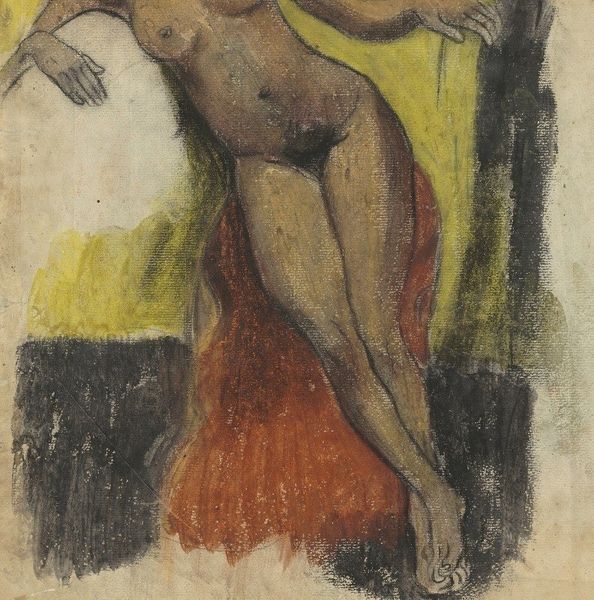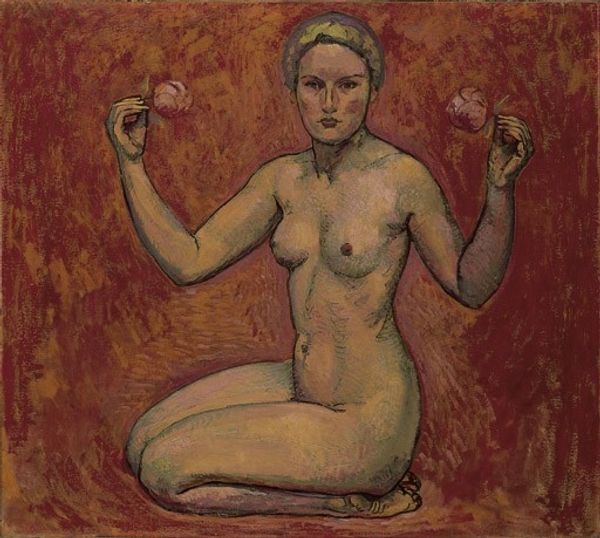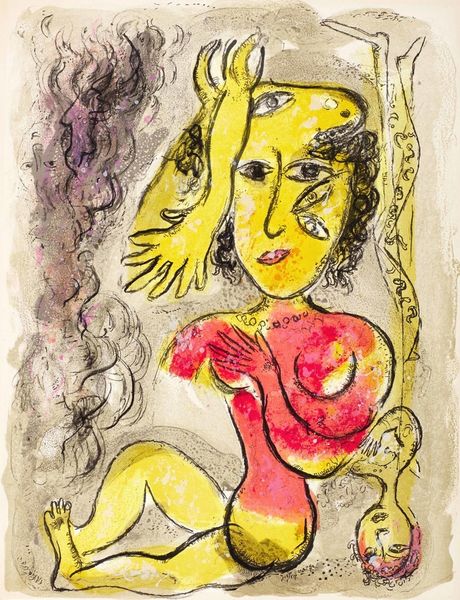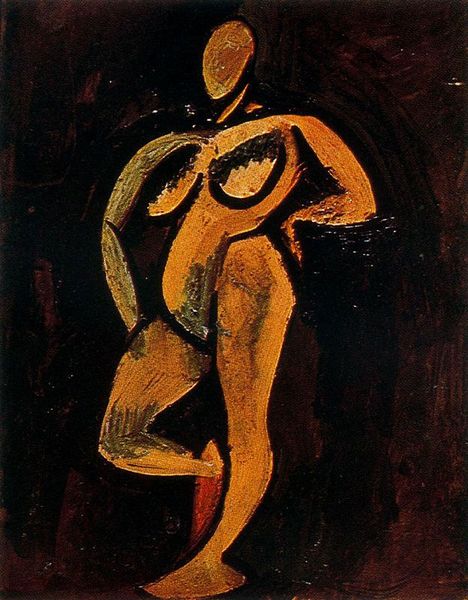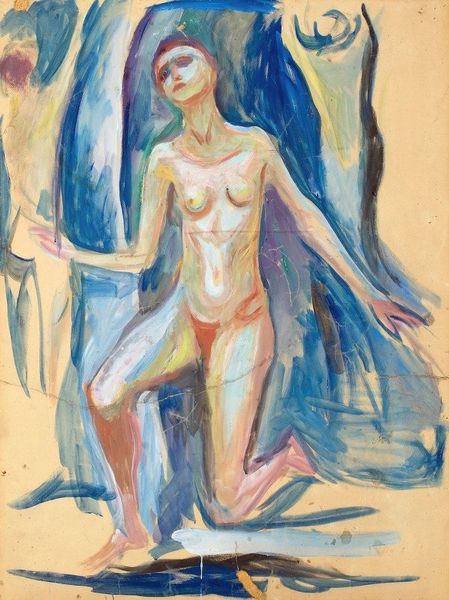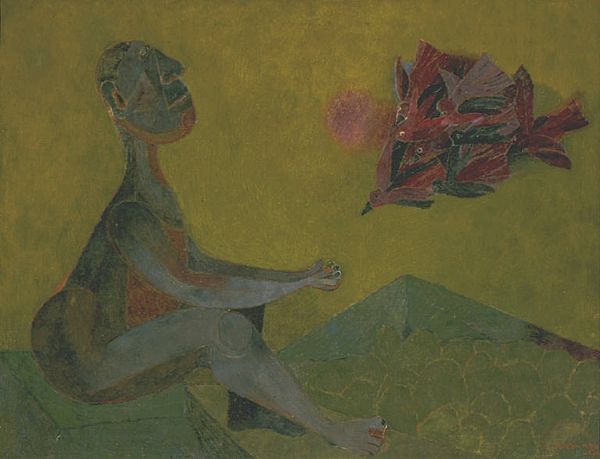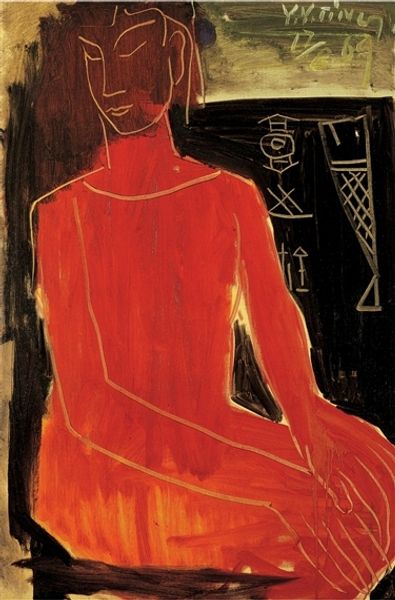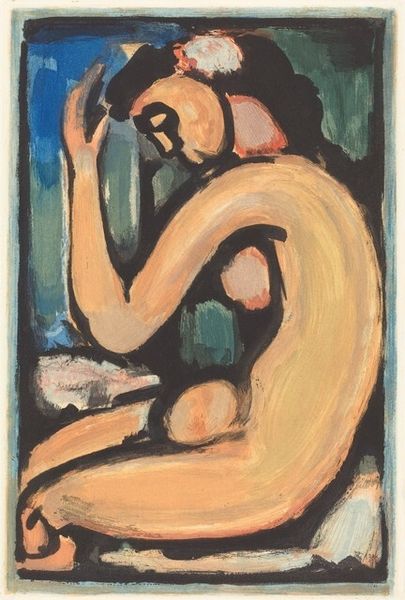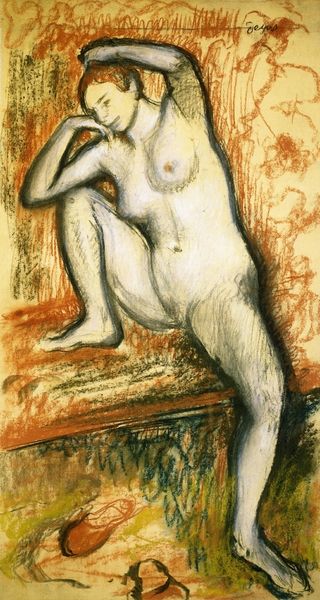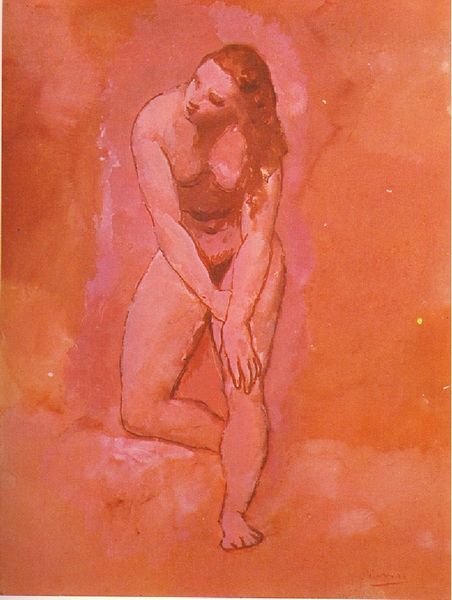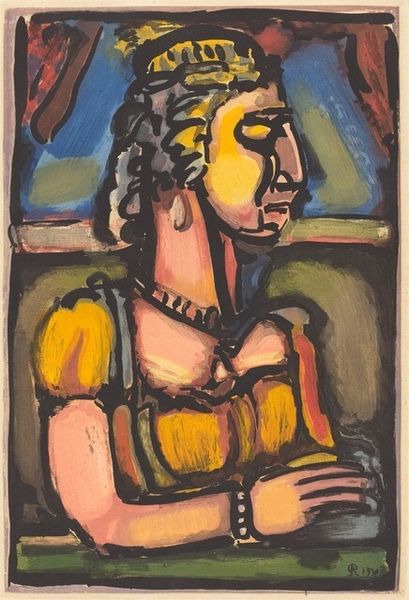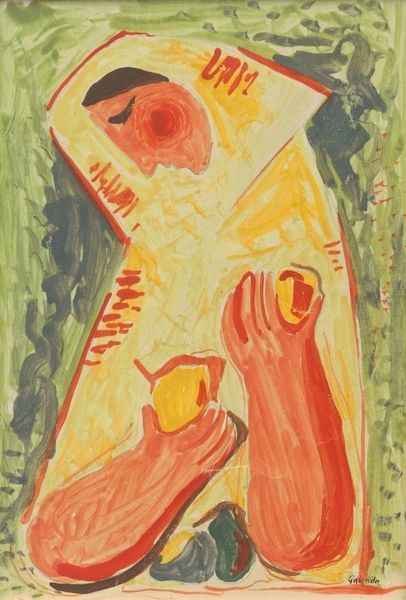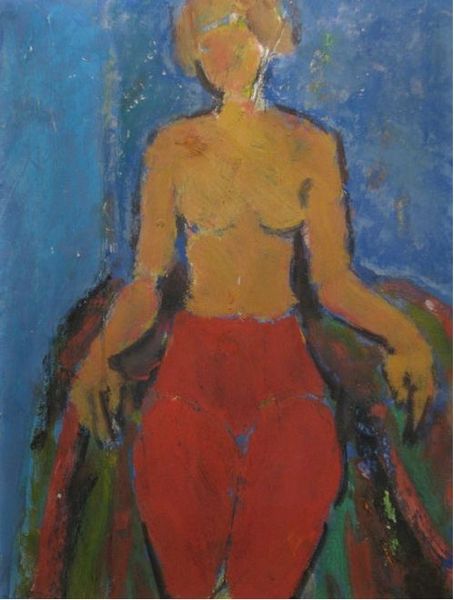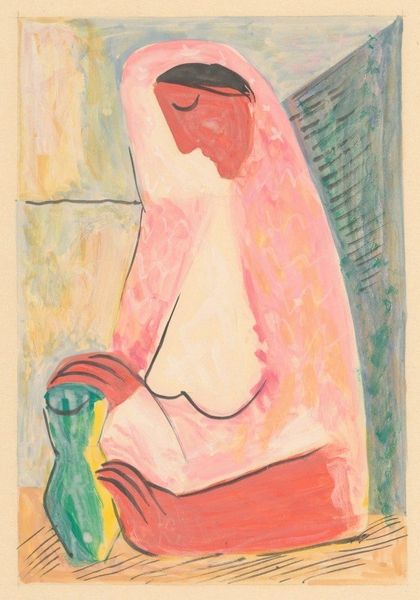
Copyright: Public domain US
Curator: Let’s take a look at Cuno Amiet’s, "Female Nude with Flowers (The Truth)," painted in 1913, executed with oil paint, featuring impasto in some areas. What do you make of it? Editor: The warmth almost radiates, doesn’t it? It's a bit unsettling but comforting, all those layered peachy hues wrapping this figure. Like she’s emerging from a dream or being formed from earth itself. Curator: The materials really play into that earthy feel, I think. Amiet’s use of oil, especially the impasto texture, speaks to the physical labor and materiality behind image-making. It’s not just an idealized nude; there’s a rawness. Editor: Exactly! And there’s a beautiful dissonance between the overt, almost Symbolist presentation—that "truth" hinted at in the title—and the unidealized form. It makes me question those classical depictions and how often they erased lived experiences of real bodies. Curator: The very fact that the model holds flowers is fascinating when contextualized within the turn of the century, right before World War One and the avant-garde embrace of machinery, urbanization, and mass production. What's your read on this seemingly intimate offering of flora? Editor: It feels incredibly deliberate, right? Flowers signify purity, often, or sensuality. But here, they’re held as…evidence, perhaps? Proof of a tangible, unadulterated beauty against the backdrop of, as you mentioned, impending mechanization and dehumanization of industrial conflict. Almost like holding onto the last threads of Eden. Curator: And how fascinating to create a figure seemingly from one flesh-like plane to then fragment with light and color and create texture, so she emerges both singular and multi-dimensional. Editor: The work's title challenges us too, perhaps to discover or rediscover that essence, the very heart of human form represented through those very particular flowers and palette. It’s as if he's stripping away pretense and demanding we acknowledge this is what it really looks like—the "truth", as the title claims. Curator: It makes you ponder artmaking as a site of personal, political, and ultimately deeply humane reckoning. Editor: Definitely a poignant piece. Amiet has carved out a compelling dialogue on embodiment and the quest for meaning in turbulent times. I could spend a lot more time in front of this painting!
Comments
No comments
Be the first to comment and join the conversation on the ultimate creative platform.
